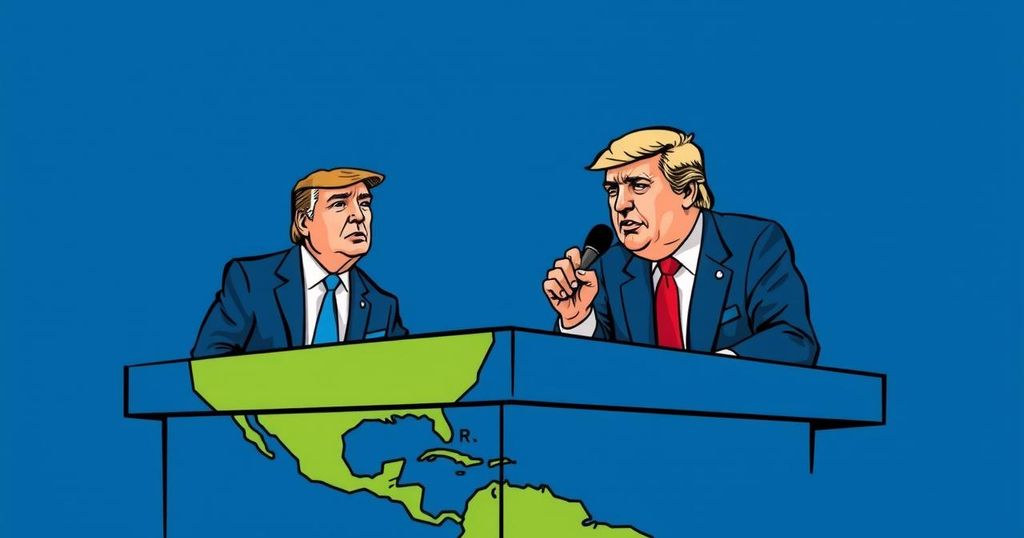Donald Trump’s re-election poses a significant threat to global climate change efforts, continuing his previous administration’s skepticism towards climate science and withdrawal from international agreements such as the Paris Accord. His potential policies could lead to increased fossil fuel production and cuts to climate science funding, risking global temperature targets and undermining international collaboration. However, the resilience of the global climate movement may counterbalance these actions, ensuring ongoing efforts toward clean energy and environmental sustainability.
The leadership of the United States is a crucial element in the global fight against climate change, especially as it is the largest historical emitter of greenhouse gases. With Donald Trump’s recent election as the 47th President of the United States amidst the ongoing COP29 in Baku, uncertainties regarding international climate initiatives are magnified. In his first term, Trump demonstrated a pronounced skepticism toward climate science and withdrew from the Paris Agreement, a move that could be repeated in his second presidency. A continuation of this strategy would likely result in the United States undermining vital international climate commitments and initiatives, fostering an environment where other nations may also reconsider their climate pledges. Trump’s previous comments regarding the Paris Agreement underscore his nationalistic approach to the issue; he stated, “In order to fulfill my solemn duty to protect America and its citizens, the United States will withdraw from the Paris Climate Accord,” and further criticized the accord’s economic implications for the country. If Trump advances policies favoring fossil fuel production as he did previously, increased greenhouse gas emissions may become the norm, thereby obstructing the global transition to renewable energy. Trump’s rhetoric during his recent victory speech highlighted the large reserves of fossil fuels in the United States, assuring supporters of ongoing priorities to develop these resources without restrictions. Such actions could significantly hinder efforts to limit temperature rise to below 1.5 degrees Celsius. With anticipated cuts to funding for climate research and adaptation support for vulnerable countries, the absence of U.S. leadership could create a global void in political will, forcing many nations to withdraw from their commitments. Nevertheless, the global movement toward clean energy continues unimpeded, suggesting that while U.S. policy may shift, the collective commitment to combating climate change remains resolute.
As a major player in international climate policy, the United States holds a pivotal role, particularly as the largest historical greenhouse gas emitter. Current discussions at COP29 highlight the urgency of climate action. Trump’s return as President presents challenges due to his established skepticism of climate science and reluctance to engage in global agreements like the Paris Accord. This backdrop underscores the potential ramifications of U.S. policy shifts on international climate initiatives and broader global efforts at cooperation.
In summary, Donald Trump’s re-election could significantly derail international climate change efforts by undermining multilateral agreements and promoting fossil fuel production. His previous actions reveal a commitment to nationalism that places economic considerations above global environmental responsibilities. While the U.S. might retreat from its leadership role, the global movement towards renewable energy and climate action is likely to persist. Nonetheless, the implications of a Trump presidency on climate commitments warrant serious attention, as they could exacerbate global vulnerability to climate issues.
Original Source: www.manilatimes.net






